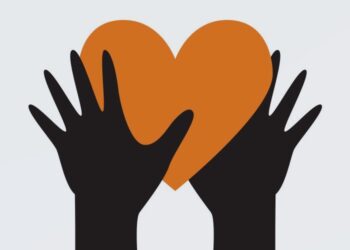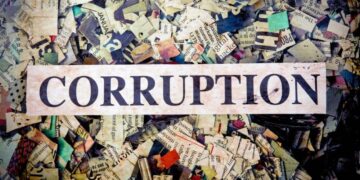A public holiday, national holiday or legal holiday is a holiday generally established by law and is usually a non-working day during the year. Sovereign nations and territories observe holidays based on events of significance to their history. The public holidays are generally days of celebration, like the anniversary of a significant historical event, or can be a religious celebration.
Kenya has twelve gazetted public/national holidays. During public holidays, most businesses and public companies are closed except for service firms and organizations that provide essential services such as police stations, restaurants, hotels, grocery stores and supermarkets, hospitals, among others.
What is the Kenya Gazette?
The Kenya Gazette is an official publication of the government of the Republic of Kenya. It contains notices of new legislation, notices required to be published by law or policy as well as other announcements that are published for general public information. The publication takes place every week, usually on Friday, with occasional releases of special or supplementary editions within the week.
The minister-in-charge may at any time if he thinks fit, by notice in the Gazette, declare any day to be a public holiday either in addition to the days mentioned in the Public Holidays Act or in substitution for any of those days. However, some of the gazetted public holidays in Kenya have varying dates from one year to the next, though the significance remains the same. Where, in any year, a day in public falls on a Sunday, then the first succeeding day, not being a public holiday, shall be a public holiday and the first-mentioned day shall cease to be a public holiday.
Gazetted public holidays in Kenya
There are approximately twelve nationally recognized and gazetted public holidays in Kenya.
1. New Year’s Day (January 1st)
New Year’s Day is the first day of the year, in the Gregorian calendar, and falls exactly one week after the Christmas Day of the previous year. It’s among the most celebrated public holidays in the world, often observed with fireworks at the stroke of midnight as the new year starts in each time zone.
2. Good Friday (March or April)
Good Friday is a Christian holiday commemorating the crucifixion of Jesus and his death at Calvary. The date of Good Friday varies from one year to the next. The holiday is marked on the Friday before Easter Sunday.
3. Easter Monday (March or April)
Easter Monday is the day after Easter Sunday and is a holiday in some countries. Easter Sunday is celebrated to mark the resurrection of Jesus Christ and the end of Lent/Holy Week for Christians. Since Sunday is a weekend, it overflows to Monday which is a public holiday in Kenya.
4. Labour Day (May 1st)
Labour Day, also known as International Workers Day or May Day is a public holiday that is recognized in various countries worldwide to appreciate the struggle of working individuals. On this day, most Kenyans do not go to work but instead, attend a public event which is normally brought together by the Worker’s union. This day signifies issues surrounding the working individual. There are three things that are usually addressed during this day; salary increment, health and safety of workers, and workers constitutional rights.
5. Madaraka Day (May 1st)
Madaraka Day (Independence or Self-Governance Day) is a national holiday celebrated every June 1st of every year in the Republic of Kenya. It commemorates the day in 1964 that Kenya attained independent self-governance after decades as a British colony. Madaraka is a Swahili word for “freedom, independence”.
On June 1st 1963, Kenya became a self-governing country when Jomo Kenyatta became the first prime minister. Full independence from British rule followed on December 12th 1963 when Kenya became an independent nation. This is one of the three national holidays created by Article 8 of the Constitution of Kenya 2010.
6. Eid al-Fitr (Date depends on the sighting of the moon)
Eid al-Fitr, also called the “Festival of Breaking the Fast”, is a religious holiday celebrated by Muslims worldwide that marks the end of the month-long dawn-to-sunset fasting of Ramadan. The date for the start of any lunar Hijri month varies based on when the new moon is sighted by local religious authorities, so the day of celebration varies by locality.
7. Eid al-Adha (Date depends on the sighting of the moon)
Eid al-Adha, also called the “Festival of the Sacrifice”, is the second of two Islamic holidays celebrated worldwide each year (the other being Eid al-Fitr), and considered the holier of the two. It honours the willingness of Ibrahim (Abraham) to sacrifice his son as an act of obedience to God’s command. In the Islamic lunar calendar, Eid al-Adha falls on the 10th day of Dhu al-Hijjah, and lasts for four days.
In the international (Gregorian) calendar, the dates vary from year to year shifting approximately 11 days earlier each year. Dates also may vary from one region to the next based on the official sightings of the crescent moon. In the Islamic calendar, the sighting of the crescent moon determines when a month ends and a new one begins.
8. Utamaduni Day (October 10th)
Utamaduni Day is a public holiday in Kenya observed on October 10th each year. The day has been set aside to celebrate the country’s rich cultural diversity and heritage. Initially, the day was known as Moi Day in honour of Kenya’s second president, Daniel Arap Moi. It was renamed as Huduma Day, and then Utamaduni Day in December 2020.
9. Mashujaa Day (October 20th)
Mashujaa Day, also known as Heroes’ Day (“mashujaa” is Swahili for “heroes”), is a national day in Kenya, which is observed on October 20th as a public holiday to collectively honour all those who contributed towards the struggle for Kenya’s independence or positively contributed in the post independence Kenya. Initially, the day was known as Kenyatta Day in honour of Kenya’s first president, Jomo Kenyatta. However, following the promulgation of the Constitution of Kenya in August 2010, Kenyatta Day was renamed to Mashujaa Day.
10. Jamhuri Day (December 12th)
Jamhuri Day (Republic Day) is a national holiday in Kenya, celebrated on December 12th each year. Jamhuri is the Swahili word for “republic” and the holiday is meant to officially mark the date when Kenya became an autonomous republic on 12th December 1963. The country became a republic after gaining full self-governance from the United Kingdom, after gaining independence on 1st June 1963.
However, it was not until on the 12th December 1964, that Kenya was fully independent from the United Kingdom. Jamhuri Day is regarded as Kenya’s most important day, marked by numerous festivities which celebrate the country’s cultural heritage and looks back at her journey to independence and self-governance.
11. Christmas Day (December 25th)
Christmas is an annual festival commemorating the birth of Jesus Christ, observed primarily on December 25th as a religious and cultural celebration among billions of people around the world. Christmas Day is a public holiday in many of the world’s nations, is celebrated religiously by a majority of Christians, as well as culturally by many non-Christians, and forms an integral part of the holiday season centered around it. In Kenya, Christmas day is considered a special time for Kenyans to spend with their families and it is the one time most people travel to their rural homes.
12. Boxing Day (December 26th)
Boxing Day is a holiday celebrated the day after Christmas Day, December 26th. It originated in the United Kingdom and is celebrated in a number of countries that previously formed part of the British Empire. Kenya, being one of the nations colonized by the British, adopted the holiday and it’s one of the gazetted holidays in the country. Today, the day is marked with opening of gifts given during Christmas Day.


































































































































































































